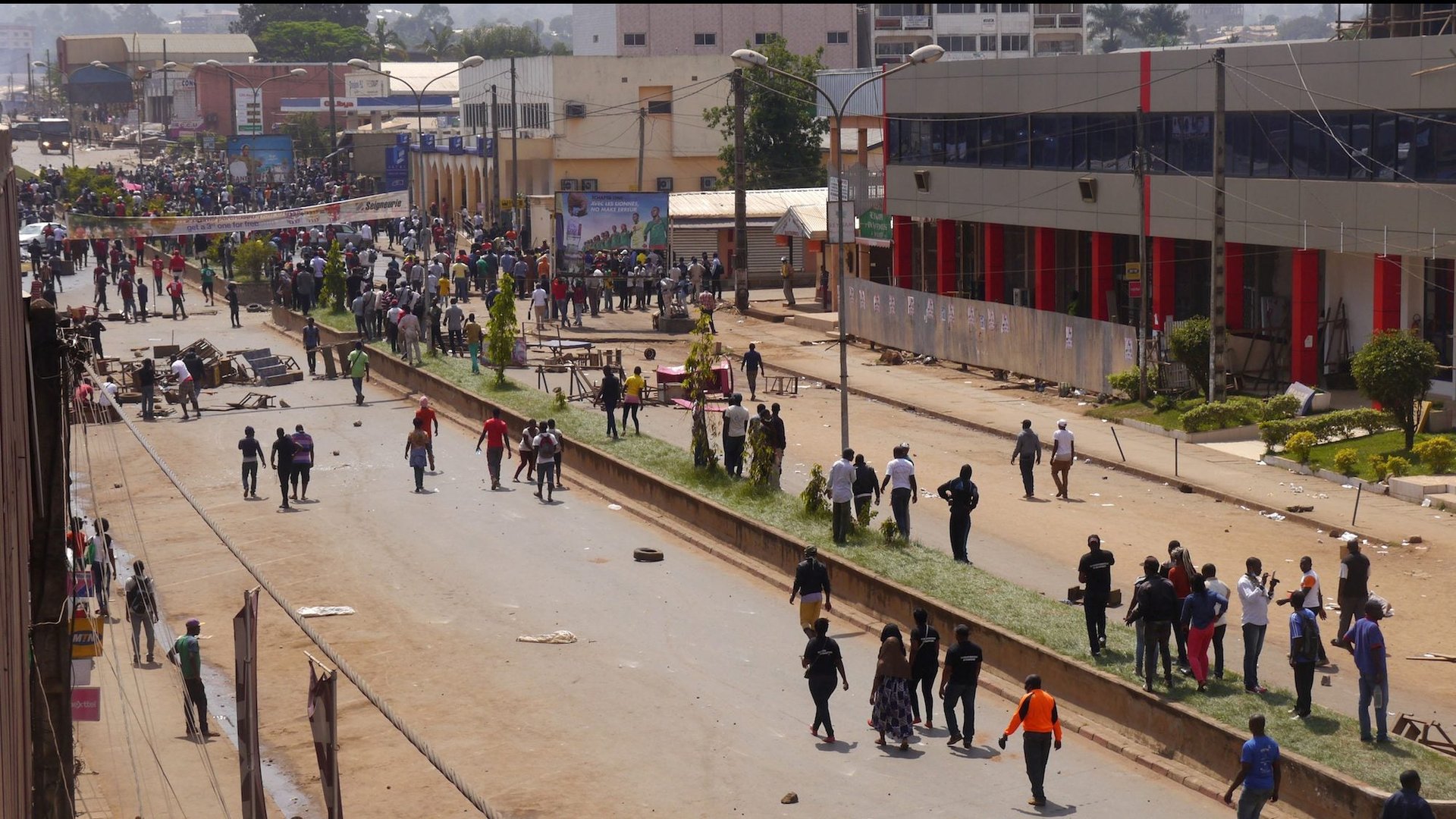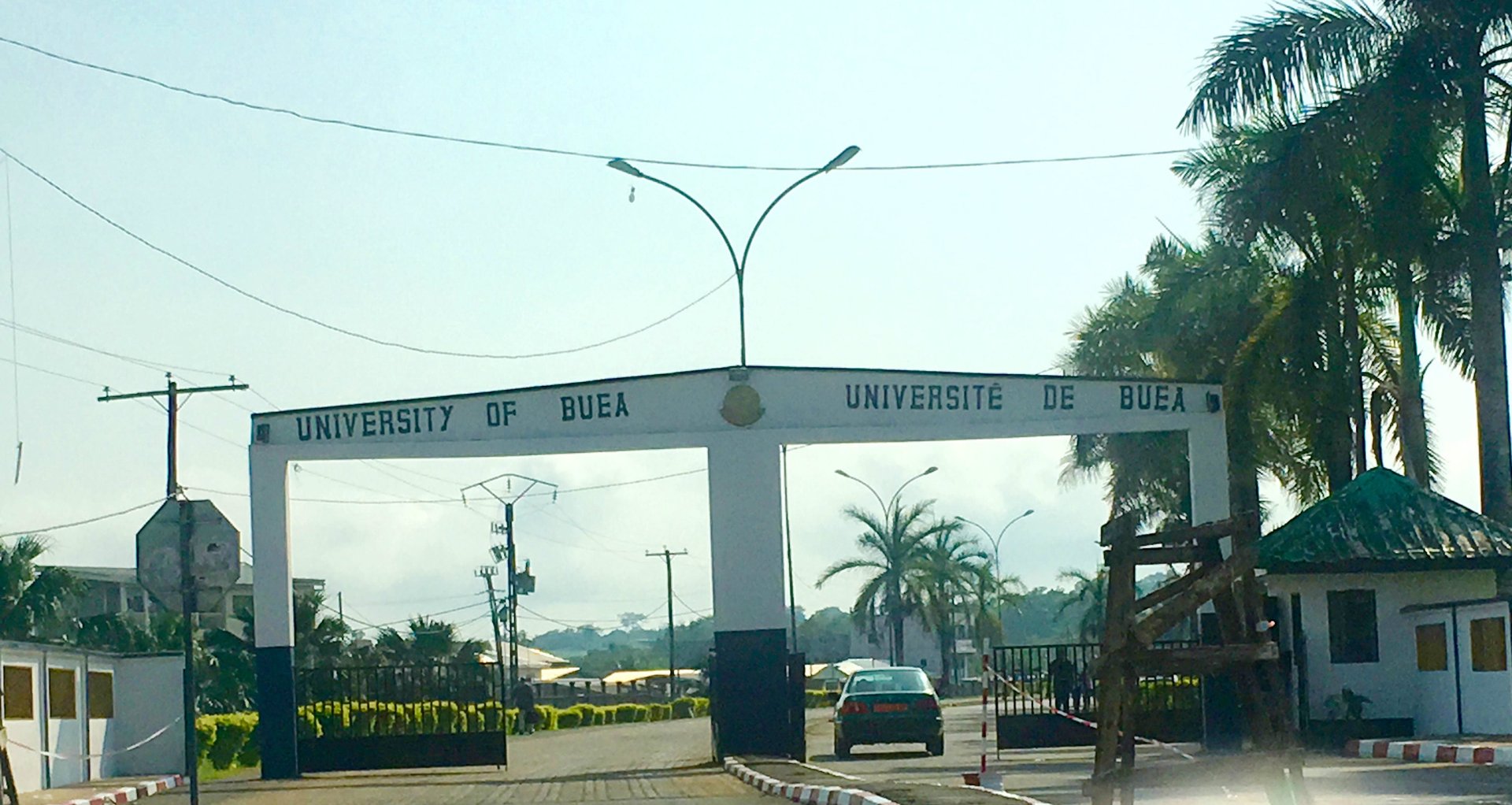Cameroon has shut down the internet in its English-speaking regions
Internet connections have been completely shut down in the northwest and southwest of Cameroon, its two main English-speaking regions as a long drawn out mass protest against marginalization by the French-speaking led government persists.


Internet connections have been completely shut down in the northwest and southwest of Cameroon, its two main English-speaking regions as a long drawn out mass protest against marginalization by the French-speaking led government persists.
It is the first time the central African country is tampering with internet connectivity, which has been ongoing in the former Southern Cameroons since Jan. 17.
Internet users in the affected parts of the country found out they could no longer communicate and disseminate information particularly on social media. No prior notice had been given by the government before the internet blackout.
The shutdown came less than two hours after government outlawed the activities of two Anglophone pressure groups—Southern Cameroons National Council and the Cameroon Anglophone Civil Society Consortium. Two leaders of the Consortium, Barrister Nkongho Felix Agbor and Dr. Fontem A. Neba, were arrested same day in Buea and airlifted to the nation’s capital Yaounde.
Cameroon’s current difficulties stem back to its pre-independence history when it was formed from a region that was colonized by the British with the region run by the French. Its government, education, and legal systems are dominated by the larger French-speaking region. In recent years tensions have mounted as people from the Anglophone regions have complained about being marginalized by the Francophone-led establishment. The Anglophone regions account for just under 20% of the Cameroon’s 23 million population.
Blockade
African governments have been at the forefront of internet shutdowns in the last two years. Last year shaped up to be “the year of internet shutdowns,” as at least 11 African governments interfered with the internet during elections or protests. More people are having to figure out how to stay online during such shutdowns.
Cameroon authorities were easily able to impose the shutdown due to the fact the country’s optic fibre backbone is operated by a state owned corporation, Cameroon Telecommunications (CAMTEL). Other mobile network and internet service providers; MTN Cameroon, Orange Cameroun and Nexttel rely solely on CAMTEL’s optic fibre to service their subscribers.
Cameroon’s Ministry of Post and Telecommunications is said to have handed down firm instructions to the various network service providers to strictly implement the shutdown.
MTN Cameroon, which is a leading operator in the affected areas, sent messages to its subscribers, acknowledging the internet blackout and stating that it was due to “circumstances beyond their control.”
Customers of commercial banks, micro-finance institutions and money transfer agencies, which make use of internet, have confirmed the internet block in the main towns of Bamenda, Buea, Kumba, Limbe and Kumbo. Buea in particular has been nicknamed Silicon Mountain, for its small but burgeoning tech startup ecosystem and local universities which sit in the shadow of Cameroon’s Mount Fako.

The internet has largely been used as a tool for mobilization in the wake of mass protests which have been characterized by ‘Ghost Towns’. Principally two Cameroonian social media activists, Mark Bara and Tapang Ivo Tanku, have been using Facebook and Whatsapp to mobilize aggrieved Anglophone Cameroonians from abroad.
Many believe the government’s move is an attempt to circumvent internet planning and communication through social media. It has prompted a #BringBackOurInternet campaign from Cameroonians in regions unaffected by the shutdown. Prior to the shutdown, government embarked on a campaign of sending warning messages to all phone users in the country.
After pictures suggesting government neglect following the Eseka train accident last year, the Biya regime attempted to cut off social media—Facebook, WhatsApp and Twitter in the country. But it failed in its attempt, apparently due to limited knowhow.
According to reports, Issa Tchiroma Bakary, the country’s Minister of Communications then negotiated with the mobile telephone and internet providers operating in the country to suspend service for some time.
There are no indications that the reinstatement of internet connection west of Cameroon will take place any time soon.